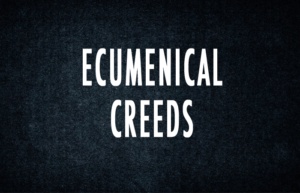Cards on the table: I am a little concerned by a trend that developing among evangelicals.
Heidelcast 183: What Must A Christian Believe? (1)—Our Ancient, Universal, Christian Faith
This is episode 1 in the series, “What Must A Christian Believe?” I chose this title for two reasons: 1) Since I began pastoral ministry in 1987 it is one of the questions I have received most often; 2) it is Question . . . Continue reading →










